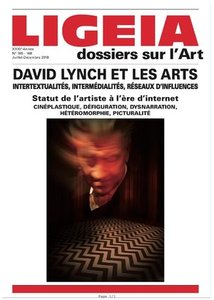
Introduction: A Unique Voice in Cinema
David Lynch is an American filmmaker, known for his eccentric storytelling and unique cinematic style, weaving surrealist elements into mainstream narratives. His contributions to film and television have significantly impacted the art of storytelling, creating a distinct genre that challenges the conventions of traditional filmmaking. As cultural discussions increasingly explore creative authenticity and artistic expression, Lynch’s work remains relevant and cherished by audiences worldwide.
Career Highlights
Born on January 20, 1946, in Missoula, Montana, Lynch gained initial recognition with his debut feature film, Eraserhead (1977), a surreal exploration of industrialization and fatherhood. This film, marked by its haunting imagery and sound design, laid the foundation for Lynch’s signature style. Following this, Lynch created critically acclaimed films such as Blue Velvet (1986) and Mulholland Drive (2001). The latter won the Academy Award for Best Director and has since been regarded as a modern classic. Throughout his career, Lynch has been praised for his ability to blend the bizarre with the mundane, pushing boundaries and offering fresh perspectives on the human experience.
Television and Recent Work
Lynch’s influence extends beyond film into television, with the cult classic series Twin Peaks (1990-1991) achieving monumental success. The series, which blended soap opera elements with supernatural intrigue, garnered a loyal fan base and paved the way for complex storytelling in television. After a lengthy hiatus, Lynch revisited the Twin Peaks universe with the 2017 revival, demonstrating his persistent relevance in the evolving landscape of media.
Impact and Legacy
David Lynch’s approach to storytelling—characterized by dream-like sequences and ambiguous narratives—has inspired a new generation of filmmakers and artists. His visual style and soundscapes have become a reference point for creators looking to experiment with audiovisual composition. Moreover, Lynch’s commitment to artistic originality emphasizes the importance of creative freedom in the face of commercial pressures, challenging creators to trust their instincts and embrace uniqueness.
Conclusion: A Lasting Influence
As we reflect on the contributions of David Lynch to cinema and television, it is clear that his legacy will endure. His works invite audiences to explore deep themes of identity, perception, and the subconscious. By continuously pushing creative boundaries, Lynch remains a vital figure in contemporary culture, inspiring discussions on the nature of reality and storytelling. For current and future filmmakers, Lynch’s career serves as a reminder to embrace the unconventional, ensuring that the spirit of innovation remains alive in the arts.



